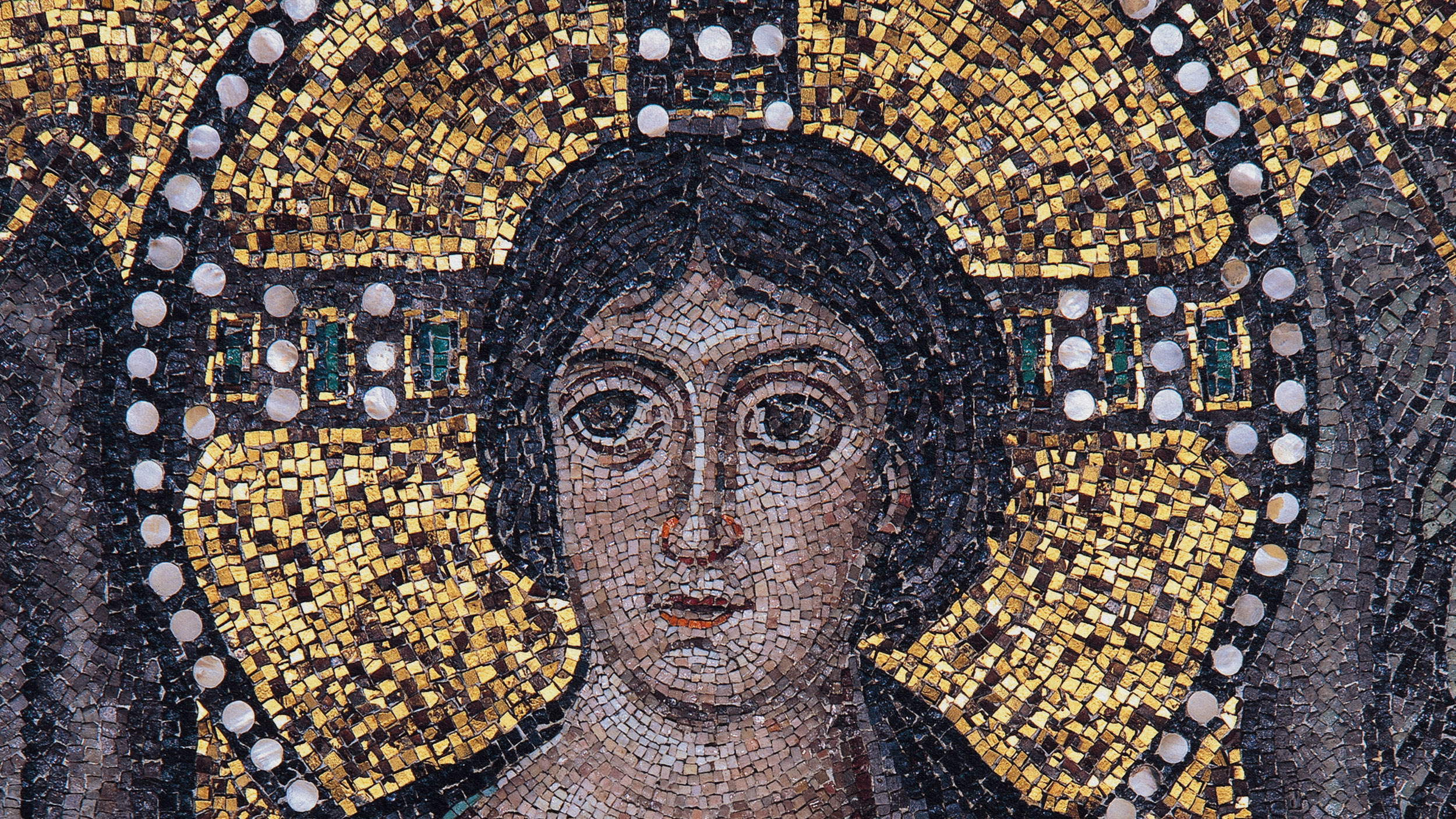Does it matter if there was a historical Jesus?

Credit: motortion/Adobe Stock
- Early Christianity was a synthesis of Jewish and Greek ideas and rituals, though it’s often presented as brand new.
- Jesus’s teachings can predominantly be traced back to earlier apocalyptic Judaism.
- An important question persists: Is it the man or the message that really matters to modern Christians?
Although Jesus Christ is inextricably linked to Christianity, historically he was a major factor but not the totality of the faith. For the bulk of the last 2,000 years, Christians were more concerned with other facets of their religion. As religion professor Stephen Prothero writes, the obsessive focus on the Christ figure is a relatively recent innovation.
Within America, Christ has many meanings for different people. Prothero notes that American Christians have portrayed him as “black and white, male and female, straight and gay, a socialist and a capitalist, a pacifist and a warrior, a Klu Klux Klansman and a civil rights agitator.” Of course, each denomination claims to worship the correct Jesus, which is more assumption than grounded truth.
Christ’s malleability is historically constant. We can see that in action today. For supporters of Bernie Sanders, he’s the wild-eyed prophet raging against moneymen in the temple; evangelicals pleased with the choice of Amy Coney Barrett are rejoicing over the potential overturning of Roe v Wade, a cultural wedge issue they claim Jesus demands. With this kind of imagined flexibility, does the actual historical Christ even matter?
The historical Jesus has always been elusive. The four gospels—the only widely circulated biographies of his existence—were penned somewhere between 65 and 100 years after his death. Gospel writers never even divulge his appearance. As religious scholar Lawrence Cunningham writes, New Testament authors “do not say what Jesus looked like.” From Christianity’s very origins, Christ is portrayed more as archetype than man.
Scripture and prophecy don’t always match up: the Hebrew Bible claimed the coming prophet would be born in Bethlehem, a prediction “Jesus of Nazareth” doesn’t fulfill. Sure, Luke says his parents were visiting for a census, while Matthew claims they were always in Bethlehem until fleeing to Egypt under duress (and then ended up in Nazareth). The earliest gospel, Mark, keeps it simple: Jesus of Nazareth is from Nazareth.
Remember, we aren’t even discussing Q or the Gospel of Mary.
The Jesus of History versus the Christ of Faithwww.youtube.com
These aren’t the only contradictions, though what can you expect when four writers tackle one subject on hearsay over the course of decades?
There’s also the question of narrative lineage. As Brian Muraresku writes in “The Immortality Key,” the Church has gone to great lengths to make it appear as if Christianity emerged whole-cloth amid a world of pagan worship. In fact, the ruling Romans considered early Christians to be atheists due to their belief in only one God. Christians certainly held distinct beliefs, but they were also heavily influenced by their environment.
Most biblical stories have precedent. As Muraresku notes, you don’t get to Jesus without Dionysus; Dionysus without El; El without Osiris; Osiris without a rich oral history that predates written language. In each case, the mythological archetype mattered most. With Christianity, an emphasis was placed on a man, which in some ways is also traceable to the Greeks.
As Edith Hamilton writes in her epic survey on mythology, the Greek emphasis on human deities (in sculpture, painting, and story) broke from prior traditions, which dreamed up animal totems and animal-human hybrids. Christians merely took human worship to the next level, even though the roots of this practice are distinctly Greek.
As with all religions, Christianity was a cult for quite some time. Early Christian writers fused Jewish and Greek ideas during the Patristic Era to create their doctrines. Various Christologies were introduced to suit the temperament of each faithful tribe. After the Nicene Creed (325 CE) dubbed Jesus the “only-begotten Son of God,” a host of competing Christian offshoots shook their head in agreement. The man finally usurped the myth, and the cult took form as a global religion.
Though Jesus is presented as revolutionary, his philosophical bent squares well with the apocalyptic prophets of Judaism, especially as presented in Second Isaiah. Jesus remixed a long-held Jewish belief in a heavenly kingdom on earth. Amos and First Isaiah feature plenty of discussion about speaking up for the poor and weak. The exploitation of the lower class had been a sin for at least seven centuries by the time Jesus took to the soapbox. If anything, Jesus was a synthesist, not a creationist, as was the writers that honored him.

Credit: pronoia / Adobe Stock
This doesn’t denigrate Jesus’s role in any capacity. Instead, it grounds his humanity. Every religion is a synthesis of previous religions. As Muraresku shows, the Greek influence on Christian symbolism is too often overlooked. Understanding historical circumstances help us recognize the forces such prophets were fighting and provides context for their messages. Better to evolve a tradition than pretend it emerged from a vacuum.
As religious scholar Karen Armstrong points out, Christians seem particularly interested in the origins of their religion, certainly much more so than Buddhists, making Muraresku’s research even more revealing: Why wouldn’t you want to know about the pharmacological connection between Dionysus and Jesus in the early Church? If we’re talking about the supposed world savior, would an honest biography really dampen our enthusiasm for the Eucharist? How much do his flesh and blood matter when the goal is to live his values in our time?
Christ has long been weighed down by false assumptions. German philosopher Hermann Samuel Reimarus was the first modern thinker to question myths around the historical Jesus. For example, he writes that Jesus never claimed to atone for the sins of mankind. That feature was added by St. Paul, arguably the real founder of Christianity. Reimarus writes that Jesus isn’t God, but a teacher of a “remarkable, simple, exalted and practical religion.”
If we want to investigate Jesus’s most pertinent messages—treat the poor and underserved with respect; question authority; refrain from hatred; love your neighbor as yourself—then the actual person is irrelevant. Many have espoused the same principles before and after Jesus. The man is second to the message, which, if you read his instructions closely, is how he’d likely want it.
If you think turning water into wine and walking on water is amazing, imagine the magic of universal basic income and healthcare for all. That’s a practical and living religion we can all take part in.
—
Stay in touch with Derek on Twitter and Facebook. His new book is “Hero’s Dose: The Case For Psychedelics in Ritual and Therapy.”





